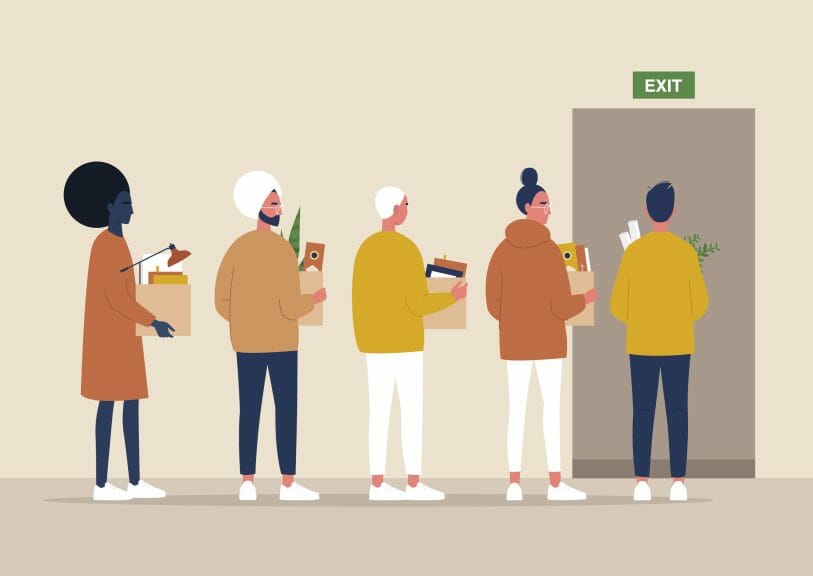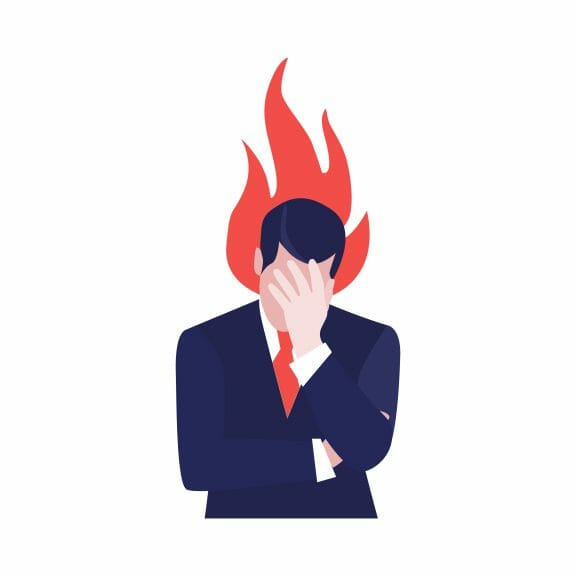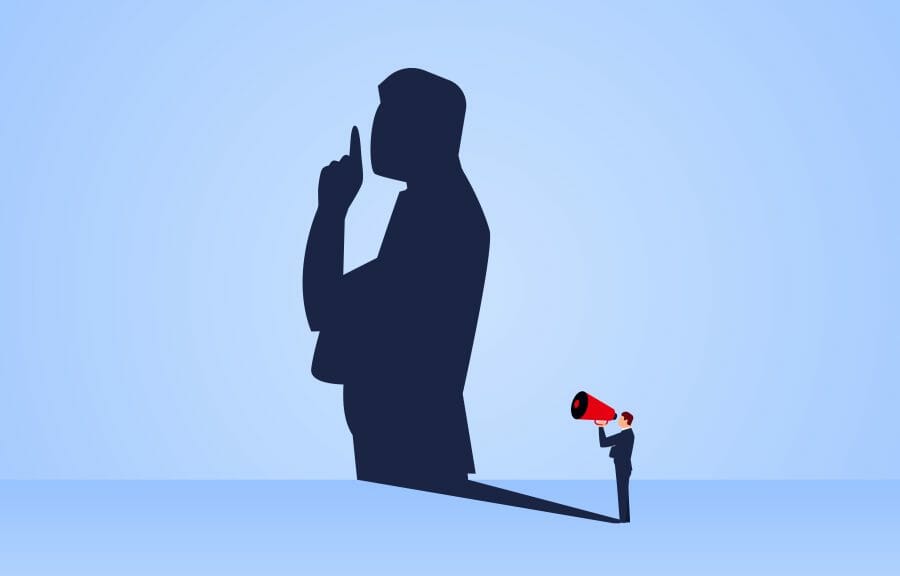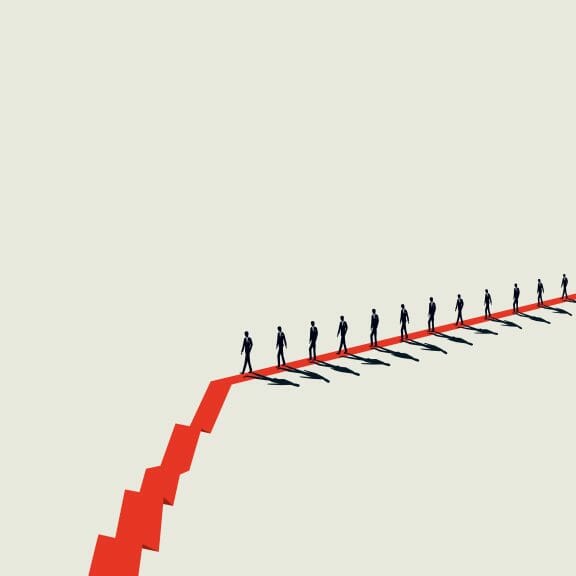As tech and media layoffs continue to amass, organizational behavior experts acknowledge the lack of discussion on the health impacts of job loss and unemployment.
Waking up to the news of the latest layoffs from a tech or media giant should be no surprise. This year, we’ve already seen announcements of mass layoffs from companies like Amazon, which plans to cut 18,000 jobs. Yahoo announced it plans to cut 20% of its workforce. Zoom laid off 1300 employees. Google cut 12,000 jobs. Microsoft will lay off 10,000 employees this year. The list goes on and on.
Tech and media layoffs have become so ubiquitous that The Atlantic reported roughly 130,000 people had been laid off from jobs in these industries in the last 12 months. That’s equivalent to the staff size of Apple before COVID. Or roughly the number of employees Amazon hired in 2017 alone.

These mass layoffs mean roughly 130,000 have lost an essential part of their lives. Because whether we want to admit it or not, our jobs are a huge part of our lives. Those with the standard 40-hour work week spend nearly 24% of their work. And that’s not including overtime, commute, or the time spent incessantly checking Slack or reading work emails.
Our jobs influence other facets of our lives, too. We often get an education with a specific job in mind. Our friend groups frequently comprise colleagues or people we meet through work. We regularly develop skills or intellectual interests because of what we do for work, with those skills and interests often influencing what hobbies we pick up in our free time. Whether through repetition or desire, our jobs become essential aspects of our identity and lives.
That’s why losing a job can feel for many like much more than a loss of income and dinged credit score. While those things are the most obvious consequences, job loss can also make people feel like they’ve lost a considerable part of their identity, throwing their self-esteem and confidence into question. No structured schedule or daily work community can leave those who let go lacking motivation, feeling isolated, and questioning their self-worth, among other things.

A growing body of research shows that job loss and unemployment can severely impact an individual’s overall health. Jeffrey Pfeffer, a professor of organizational behavior at Stanford University and one of the world’s leading researchers on the subject, has spent much of his professional career studying the workplace and how it affects our overall physical and mental health.
In a 2015 study, Pfeffer and his colleagues looked at workplace stressors, analyzing their effect on health outcomes. Using an odds ratio, they calculated the odds that a workplace stressor produced a given health outcomes, such as poor mental health or death. An odds ratio measures how much one factor increases the odds of another factor occurring, with an odds ratio of one meaning the odds did not increase at all and an odds ratio of two meaning the odds increased 100%. The study found that unemployment increased the odds of unemployed workers rating their mental health as poor by almost 90%. It also found that unemployment increased the odds of mortality in unemployed workers by nearly 45%.
This is just one study in a vast body of research on the potential health impacts of job loss and unemployment. A study analyzed the correlation between job loss and suicide rates in South Wales, Australia. Also, utilizing the odds ratio, the study found that involuntary job loss increased the odds of suicide and attempted suicide in laid-off workers by roughly 82%. Another study on job displacement and mortality rates found that mass layoffs lead to a “15-20% increase in death rates in the following 20 years” among those laid off compared to those who keep their jobs.

Research shows that layoffs impact the health of laid-off workers and managers, who, as we know, are required to implement the releases. One study looked at the correlation between layoff notices and health issues among managers, finding that layoff notices increased emotional exhaustion, self-reported health problems, treatment for health problems, sleep problems, feelings of depersonalization, and intent to quit among managers. We often want to paint managers as the villains carrying out pre-determined plans to ruin our lives when we are let go. In reality, they are likely required to forward a decision entirely out of their control – a decision that can impact their mental health just as well.
As we sit in a time of mass layoffs, equipped with a body of research showing the negative health impacts of these decisions, organizational behavior experts are acknowledging society’s silence on the health impacts of job loss and unemployment. In an interview with The Atlantic last week, Jeffrey Pfeffer recognized the lack of public discussion around how job loss and unemployment can have health impacts, noting:
“There’s been an absence of discussion of the profound consequences, behaviorally and mentally and physically, of these decisions.”
Jeffrey Pfeffer / The Atlantic

Christa Reed, a product manager at the job-search database JobSearcher, has also noticed the lack of conversations on the health impacts of job loss and unemployment. In an interview with Yahoo News, she told them:
“The emotional stress that comes with being laid off is a frequently overlooked side effect. Our jobs are so much more than just a source of income; they represent the pinnacle of our education and careers. For some, it’s their entire personality or life goal. People work so hard to be where they are. And being let go shatters their confidence in themselves. They start to question what they’ve been doing for years. In severe cases, it can lead to long-term depression as well.”
Christa Reed / Yahoo News
While neither Pfeffer nor Reed goes as far as to offer a step-by-step guide on having healthy discussions about job loss or unemployment, both their comments imply that a starting point may be creating a safe space for people to discuss the difficulty of these things with others.














